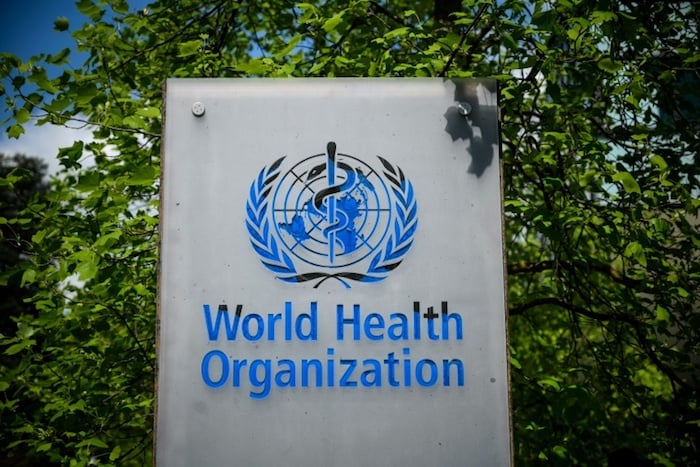Due to unhealthy lifestyle Pakistani children are stunted, suffer from obesity, overweight: WHO
A large number of children in Pakistan are stunted and severely malnourished while around 6-8 per cent of school-going children below 10 years of age are obese and overweight due to unhealthy lifestyles, WHO officials say
ISLAMABAD: A large number of children in Pakistan are stunted and severely malnourished while around 6-8 per cent of school-going children below 10 years of age are obese and overweight due to unhealthy lifestyles, unhealthy diet and physical inactivity, World Health Organization (WHO) officials said on Thursday.
“Our lifestyle has changed in recent years and we are facing more Non-Communicable Diseases (NCDs). When we look at the nutrition issue in Pakistan, we see stunting as the biggest problem while severe acute malnutrition has a very high threshold, but on the other hand, obesity is also on the rise. Around 6-8 per cent school going children under the age of 10 are obese and overweight”, Dr Palitha Mahipala, WHO’s representative to Pakistan told a medical conference here at a local hotel.
National and international health experts were attending the three-day ‘3rd International Lifestyle Medical Conference 2022’, organized by the Riphah International University (RIU) in collaboration with the Pakistan Association of Lifestyle Medicine.
Citing the WHO’s global status report on physical activity 2022, Dr Palitha Mahipala said almost 500 million people will develop heart disease, obesity, diabetes or other non-communicable diseases (NCDs) attributable to physical inactivity, between 2020 and 2030, costing US$ 27 billion annually if governments don’t take urgent action to encourage more physical activity among their populations.
“Annually 55 million deaths occur across the globe, of which 41 million or 70 per cent of deaths take place due to non-communicable diseases, which are lifestyle diseases. Of them, only cardiovascular disease caused 17.5 million deaths globally. The leading risk factor for this lifestyle disease is smoking, followed by an unhealthy diet and physical inactivity”, Dr Palitha Mahipala said.
He further claimed that around 50 per cent of women were also either obese or overweight in Pakistan while the remaining were facing issues like malnutrition and called for spending more on lifestyle medicine, health promotion and prevention from diseases.
Chancellor of the Riphah International University (RIU) Islamabad Hassan Muhammad Khan while citing a study by Shaikh Zayed Hospital Lahore, told that life expectancy in Lahore is 8 years lesser than in Islamabad due to environmental pollution and urged the authorities and people to take measures for reducing environmental pollution to live a disease-free life.
“Medical care has become unaffordable for even the largest economies of the world and now they are launching lifestyle and preventive medicine programs to reduce the disease burden. Non-Communicable Diseases (NCDs) including cancer are constantly on the rise and one of the reasons is an increase in environmental pollution. Environmental pollution is linked to reduced life expectancy all over the world including Pakistan”, Hassan Muhammad Khan said.
-
 ‘Stingy’ Harry, Meghan Markle Crack Open A Chasm Despite Donation: ‘Do So At Your Own Peril’
‘Stingy’ Harry, Meghan Markle Crack Open A Chasm Despite Donation: ‘Do So At Your Own Peril’ -
 Research Explores How TikTok’s Recommendation System May Influence Teen Beliefs
Research Explores How TikTok’s Recommendation System May Influence Teen Beliefs -
 Google Wins Approval To Export South Korea’s High-precision Maps After 20 Years—With Strict Conditions
Google Wins Approval To Export South Korea’s High-precision Maps After 20 Years—With Strict Conditions -
 King Charles’ Health Battle: What Has Been Revealed About His Cancer So Far
King Charles’ Health Battle: What Has Been Revealed About His Cancer So Far -
 Bad Bunny Tugs At People’s Heartstrings With A Generous Act Of Love: ‘Our Staff Didn't Even Realize’
Bad Bunny Tugs At People’s Heartstrings With A Generous Act Of Love: ‘Our Staff Didn't Even Realize’ -
 Paramount Wins Warner Bros. Bidding War As Netflix Abandons Deal: Here’s Why
Paramount Wins Warner Bros. Bidding War As Netflix Abandons Deal: Here’s Why -
 Cardi B Finally Responds To Accusations About Destroying 'SNL' Set After Nicki Minaj Joke
Cardi B Finally Responds To Accusations About Destroying 'SNL' Set After Nicki Minaj Joke -
 Gorton And Denton By-election Result: Green Party Defeats Labour In Blow To Keir Starmer
Gorton And Denton By-election Result: Green Party Defeats Labour In Blow To Keir Starmer -
 Jack Dorsey Cuts 4,000 Roles, Says AI Requires Smaller Teams
Jack Dorsey Cuts 4,000 Roles, Says AI Requires Smaller Teams -
 Reggie Bannister Health Takes ‘difficult Turn’ Amid Dementia, Parkinson’s Battle
Reggie Bannister Health Takes ‘difficult Turn’ Amid Dementia, Parkinson’s Battle -
 'Humble Traitor' Rob Rausch Makes Unexpected Move After Betraying Maura Higgins In Season 4
'Humble Traitor' Rob Rausch Makes Unexpected Move After Betraying Maura Higgins In Season 4 -
 Sarah Ferguson Drops An Accusation Against Andrew? ‘He Just Wants Leverage’
Sarah Ferguson Drops An Accusation Against Andrew? ‘He Just Wants Leverage’ -
 Anthropic Rejects Pentagon Military AI Proposal, Holds Firm On Safety Guardrails —What’s Next?
Anthropic Rejects Pentagon Military AI Proposal, Holds Firm On Safety Guardrails —What’s Next? -
 'Traitors' Reunion Drama: Rob Rausch Defends Strategy, Makes Shocking Revelation After Victory
'Traitors' Reunion Drama: Rob Rausch Defends Strategy, Makes Shocking Revelation After Victory -
 Inside Hillary Clinton’s Epstein Testimony: Key Takeaways And Highlights Explained
Inside Hillary Clinton’s Epstein Testimony: Key Takeaways And Highlights Explained -
 'Too Hard To Be Without’: Woman Testifies Against Instagram And YouTube
'Too Hard To Be Without’: Woman Testifies Against Instagram And YouTube




